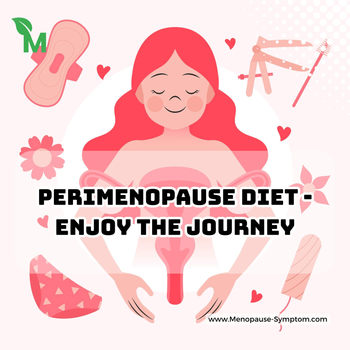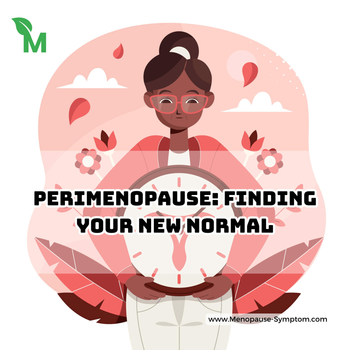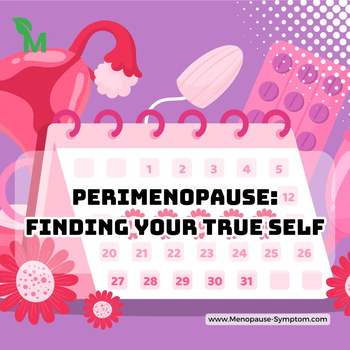While many people focus on the difficulties that menopause brings, few people think that this is also an ideal time to find joy and peace in life. Taking care of a garden not only helps you improve your physical and mental health, but also helps you connect with nature in the midst of constant changes.
As you enter perimenopause, your body will go through many changes. Symptoms such as night sweats, difficulty sleeping and fluctuating moods can make you feel confused. However, a great way to reduce stress and anxiety is to get outdoors. Taking care of your own garden is not only fun but also helps you relax your mind and body.
A recent study found that caring for plants can help improve mood and reduce stress levels, especially for those going through perimenopause. When you put your hands in the soil and care for each plant, it seems like all the hardships in life disappear.
Moreover, your garden can also become a great space to connect with family and friends. You can invite them to visit and garden together, which is a great way to create beautiful memories. Happy moments together will help you overcome difficult times in life, during this changing period of perimenopause.
The garden Not only is a place to grow your favorite plants, it also helps you recharge. Spending time outdoors, breathing in fresh air will help improve immune health, which is especially important during the perimenopause years. Moreover, being close to nature promotes the production of happy hormones, bringing a feeling of comfort and joy.
If you don’t have a garden yet, that’s okay! Start by planting a few small potted plants on your balcony or windowsill. Easy-to-grow plants like rosemary, mint or cucumbers can grow quickly, bringing you joy amid the changes your body goes through during perimenopause.
Each plant will bring its own experience. The feeling of caring for plants, watching them grow every day, will be like caring for yourself in your journey to find balance in life. The journey of perimenopause can be challenging, but with a thriving garden, you can find joy and satisfaction in every moment.
In addition, combining food from the garden into daily meals also brings many health benefits. During perimenopause, nutrition is an important factor in managing symptoms such as hot flashes, weight gain or mood swings. Vegetables grown from the garden are often more nutritious, helping your body maintain health and energy.
Healthy eating can also be a fun habit to do together as a family, from planning meals to harvesting your own fruits and vegetables. These activities not only help your family bond, but also leave you feeling energized.
In addition, when you take care of your garden, you not only spend time for yourself but also do something beneficial for the environment. Planting trees not only beautifies your living space but also contributes to protecting the living environment, helping to create fresher air for you and your family.
When you enter perimenopause, consider this an opportunity to rediscover yourself through nature. Setting up a weekly gardening schedule will not only bring you joy but also create a healthy and cozy living space.
Spending time outdoors not only improves your mood but also helps you improve your health. According to many studies, people who are regularly exposed to nature can reduce the risk of stress-related diseases and depression, which are very common during perimenopause. Science has proven that sunlight also stimulates the body to produce Vitamin D, an important factor for strong bones - which is extremely necessary for women during this period.
In addition, if you can create a meditation or yoga space in the middle of your garden, it will be a great choice. This will be an ideal place to relax, focus on breathing and refresh your soul. Time spent tending to the garden will become precious moments of peace in the midst of life's upheavals.
During perimenopause, taking care of yourself becomes more necessary than ever. The garden is not only a place for beauty, but it is also a place for you to find yourself, slow down and enjoy every moment. When you find joy in these small and precious things, life will become richer.
A note on your gardening journey is to be patient and open to new things. The symptoms of perimenopause can sometimes make you feel difficult, but remember that each tree, each flower has its own time and process of maturity. It’s like life itself: we all need time to transition and accept changes.
Make perimenopause an exciting journey instead of a path that creates fear. With each journey, your garden will not only be a place to grow plants but also a space to discover yourself, heal and find joy.
Finally, on this long journey, don’t hesitate to seek support from family and friends. They can be great companions on this journey, sharing experiences and finding happy moments together.
Take advantage of this time to tend to your garden, take care of yourself and find happiness. Menopause and perimenopause is not an end, but a new beginning, an opportunity to revive, explore and enjoy the simple things that life brings.
Source: Team MPS compiled, analyzed and wrote. Please dont reup without source. Many thanks.

Perimenopause Diet - Enjoy The Journey
09.02.2024
Perimenopause is an important transitional stage in a woman's life with many changes in health and psychology. This stage usually lasts from 2 to 10 years, with many signs such as hot flashes, insomnia, and mood swings.

Perimenopause: Finding Your New Normal
Invalid Date
Perimenopause is a natural phase in a woman's life, but it often comes with emotional and physical changes and challenges. For many, perimenopause can cause feelings of anxiety and uncertainty.

Perimenopause: Finding Your True Self
09.02.2024
Perimenopause is more than just a phase in a woman’s life; it is a journey of discovery and transformation. It is a natural time when a woman’s body begins to change, resulting in a gradual decline in the hormones estrogen and progesterone.
